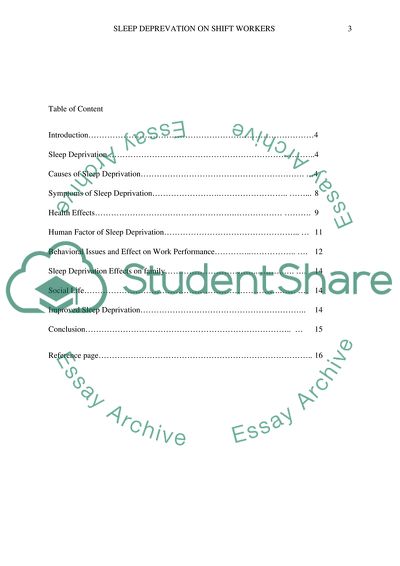Cite this document
(Sleep Deprivation Effects on Shift Workers Research Paper, n.d.)
Sleep Deprivation Effects on Shift Workers Research Paper. Retrieved from https://studentshare.org/people/1795937-sleep-deprivation-effects-on-shift-workers
Sleep Deprivation Effects on Shift Workers Research Paper. Retrieved from https://studentshare.org/people/1795937-sleep-deprivation-effects-on-shift-workers
(Sleep Deprivation Effects on Shift Workers Research Paper)
Sleep Deprivation Effects on Shift Workers Research Paper. https://studentshare.org/people/1795937-sleep-deprivation-effects-on-shift-workers.
Sleep Deprivation Effects on Shift Workers Research Paper. https://studentshare.org/people/1795937-sleep-deprivation-effects-on-shift-workers.
“Sleep Deprivation Effects on Shift Workers Research Paper”, n.d. https://studentshare.org/people/1795937-sleep-deprivation-effects-on-shift-workers.


